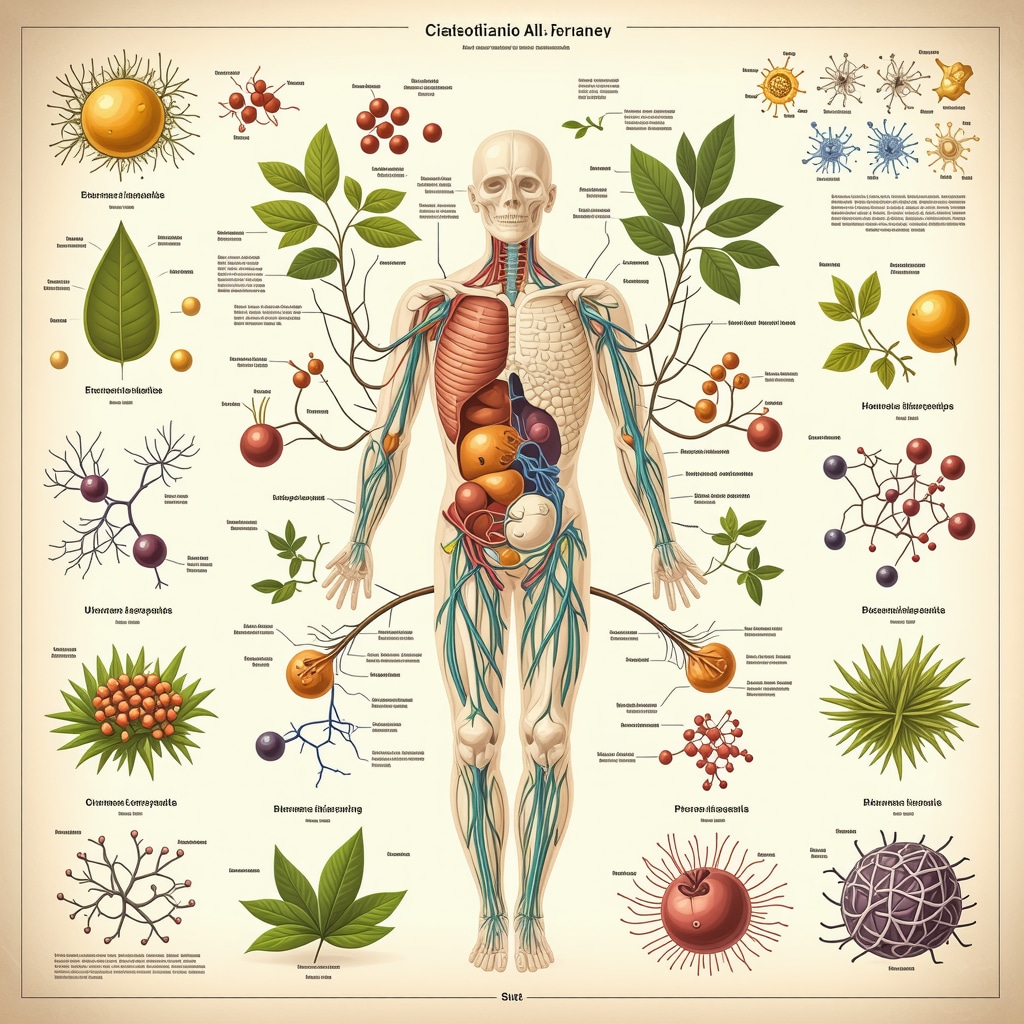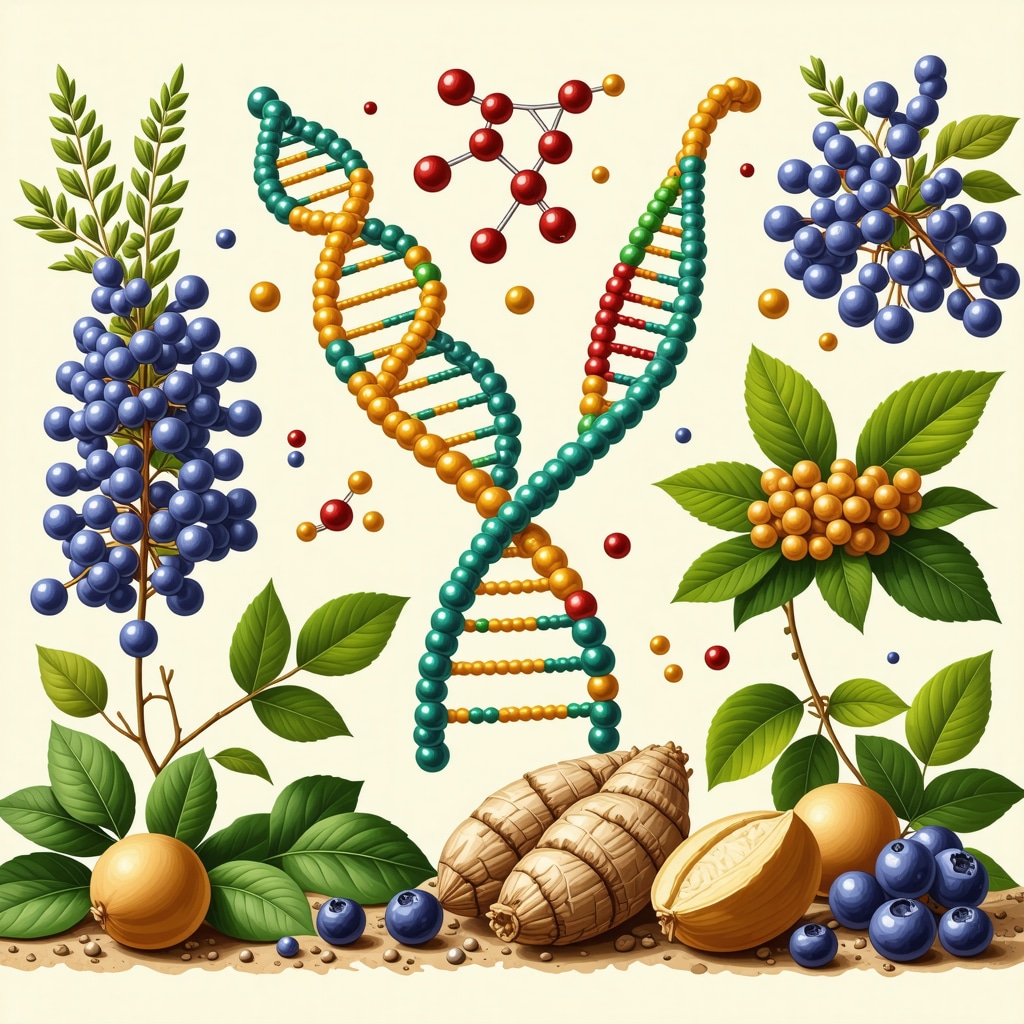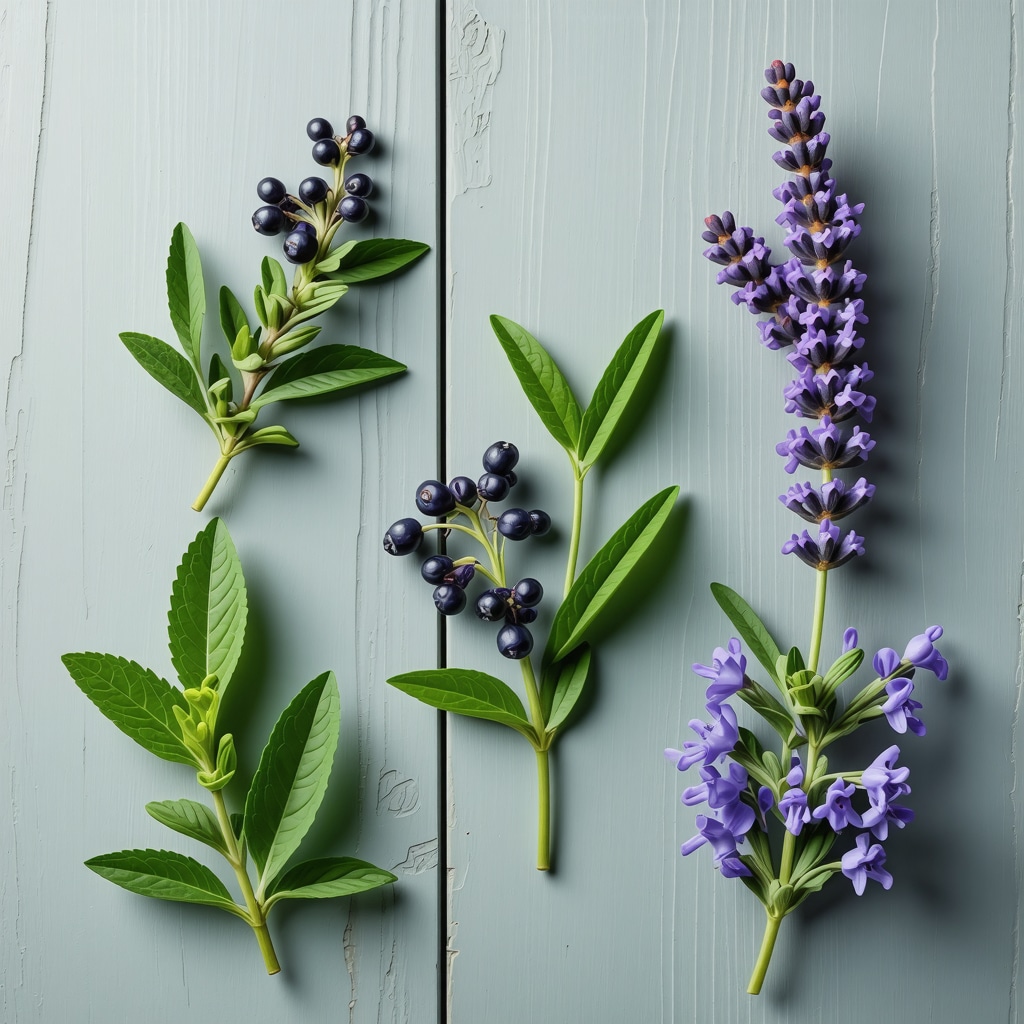Unlocking Nature’s Pharmacy: The Rise of Herbal Hormone Balance for Women in San Diego
In 2025, women in San Diego increasingly seek gentle, natural alternatives to manage hormone imbalances, often turning to ancient herbal remedies backed by modern science. Hormonal fluctuations—whether from perimenopause, menopause, or lifestyle stressors—can disrupt energy, mood, and overall health. Integrating the best herbs for hormone balance in women offers a promising path to restore equilibrium without synthetic interventions. This guide dives deep into the top botanicals garnering attention in the San Diego wellness community, highlighting their unique properties and evidence-based benefits.
A Symphony of Botanicals: Top Herbs Harmonizing Female Hormones
Several herbs stand out as potent allies in balancing estrogen, progesterone, and adrenal hormones. Maca root (Lepidium meyenii), native to the Andes but embraced globally, is prized for its adaptogenic qualities that support energy and regulate endocrine function. Vitex agnus-castus, or chaste tree berry, modulates the pituitary gland to encourage progesterone production, easing PMS and perimenopausal symptoms.
Black cohoshashwagandha excels in reducing cortisol, the stress hormone, thereby indirectly stabilizing reproductive hormones.
How Do These Herbs Actually Work to Balance Hormones?
The mechanisms go beyond simple symptom relief. Adaptogens like maca and ashwagandha improve the body’s resilience to stress, which is a critical factor in hormonal dysregulation. Phytoestrogens in black cohosh mimic estrogen, binding to receptors and providing a mild agonist effect that can ease estrogen deficiency symptoms. Vitex influences dopamine pathways to adjust luteinizing hormone levels, promoting a healthier hormonal cycle.
Can Herbal Supplements Replace Conventional Hormone Therapy Safely?
Herbal therapies can complement or, in some cases, substitute hormone replacement therapy (HRT), especially for women seeking natural approaches. However, their efficacy varies individually, and some herbs interact with medications or have contraindications. Consulting with knowledgeable San Diego hormone specialists ensures optimal integration of these botanicals. For those interested in HRT alternatives, exploring natural hormone support without HRT in San Diego offers tailored guidance.
Experience Matters: Real-Life San Diego Stories with Herbal Hormone Support
Women like Maria from La Jolla have reported transformative improvements in mood and energy after incorporating a blend of maca and vitex into their routines, under professional supervision. These anecdotal successes underscore the potential of botanical interventions as part of a comprehensive hormone health strategy.
Scientifically, studies such as those published in the Journal of Alternative and Complementary Medicine validate black cohosh’s role in mitigating menopausal symptoms, lending credible support to herbal approaches.
Integrating Herbs into Your San Diego Lifestyle for Hormone Harmony
Beyond supplementation, lifestyle factors like diet, exercise, and stress management synergize with herbs to enhance hormone balance. San Diego’s abundant outdoor lifestyle encourages activities that reduce cortisol and support endocrine health. Combining this with herbal protocols can optimize results dramatically.
Curious about personalized natural hormone strategies? Discover expert tips on natural hormone optimization for women in San Diego to tailor your wellness journey.
Ready to explore how these herbs can fit into your unique hormone health plan? Share your experiences or questions below, and join the vibrant San Diego community embracing natural hormone balance.
Listening to Our Bodies: When to Consider Herbal Hormone Support
After years of navigating the ups and downs of hormonal changes, I’ve learned the importance of tuning in closely to my body’s subtle signals. Fatigue that doesn’t resolve with rest, mood swings that disrupt daily life, or unexpected weight shifts often signal that our endocrine system needs attention. For many women in San Diego, these signs prompt a search beyond conventional medicine toward natural, plant-based solutions that feel more aligned with their lifestyle and values.
In my own journey, recognizing these early symptoms was crucial before turning to herbs like maca and vitex. This proactive approach helped me avoid more invasive interventions, and I found that combining these botanicals with lifestyle adjustments made a real difference.
Personalizing Your Herbal Approach: Why One Size Doesn’t Fit All
What fascinates me most about herbal hormone support is how personalized it needs to be. Two women may share similar symptoms but respond very differently to the same herb. Factors like age, stress levels, diet, and even gut health play into hormone metabolism and the effectiveness of botanical remedies.
Working with a San Diego hormone specialist who understands this complexity can be a game changer. Customized protocols often include carefully selected herbs, dosage adjustments, and timing that respect each woman’s unique biology. If you’re curious about this personalized care, exploring options at finding top San Diego bioidentical hormone experts for personalized care might provide you with tailored guidance.
How Can We Navigate the Balance Between Natural Remedies and Medical Guidance?
This question often arises as women weigh the benefits of herbal supplements against conventional hormone replacement therapies. From my experience and research, including insights from the Mayo Clinic, natural remedies can be safe and effective when used thoughtfully but should never replace medical advice, especially for complex hormonal disorders.
Integrating both worlds—natural and medical—often yields the best outcomes. For instance, while herbs like black cohosh have demonstrated efficacy in easing menopausal symptoms, monitoring by healthcare providers ensures safety and effectiveness over time.
Incorporating Herbal Wisdom into Daily Routines: Practical Tips
One of the joys of embracing herbal hormone support in San Diego is blending it effortlessly into daily life. Simple rituals like morning maca smoothies or evening ashwagandha teas become more than supplementation—they turn into moments of self-care and mindfulness.
Pairing these with regular outdoor activities—thanks to San Diego’s beautiful climate—amplifies hormone balance benefits. Walking along the coast or practicing yoga in the sunshine helps reduce cortisol and enhances overall well-being.
For readers eager to dive deeper, the resource on lifestyle tips to enhance hormone balance in San Diego complements herbal strategies with practical daily habits.
I’d love to hear from you! Have you tried herbal hormone support or integrated natural remedies into your wellness journey? Share your stories or questions below and connect with others embracing this holistic approach.
Decoding the Complex Interplay Between Herbs and Hormonal Pathways
Herbal interventions for hormone balance are far more sophisticated than simply “plant equals relief.” The phytochemicals present in botanicals like maca, vitex, and black cohosh act on multiple endocrine axes, including hypothalamic-pituitary-gonadal and adrenal systems. This polypharmacology means that herbs can influence hormone synthesis, receptor sensitivity, and feedback loops simultaneously, necessitating a nuanced understanding for optimal use.
For example, maca’s glucosinolate compounds can modulate estrogen receptor subtypes differently, potentially offering tissue-selective benefits, while vitex’s dopaminergic effects uniquely regulate prolactin levels, impacting luteal phase health. Such intricate mechanisms highlight why standardized dosing and individualized protocols are critical rather than one-size-fits-all herbal supplementation.
What Are the Challenges and Solutions in Integrating Herbal Hormone Support with Conventional Medicine?
Integrating botanical therapies with conventional hormone treatments presents challenges including potential herb-drug interactions, variability in herb quality, and differing regulatory standards. However, collaboration between herbalists, endocrinologists, and primary care providers can mitigate risks. Utilizing high-quality standardized extracts and conducting thorough patient history evaluations are essential practices.
Moreover, advancements in pharmacognosy and metabolomics enable clinicians to better predict how individual metabolic profiles influence herb efficacy and safety, paving the way for precision herbal medicine. According to a 2023 review in Frontiers in Pharmacology, such integrative frameworks improve patient outcomes and reduce adverse effects.
Synergistic Lifestyle Modifications Amplifying Herbal Hormone Balance Effects
Herbal supplementation achieves maximal impact when combined with targeted lifestyle modifications. Nutritional optimization, such as increasing intake of essential fatty acids and phytoestrogen-rich foods, complements herbal phytoestrogens by supporting endogenous hormone synthesis and receptor function. Additionally, stress reduction techniques like mindfulness meditation and biofeedback directly influence the hypothalamic-pituitary-adrenal axis, enhancing adaptogenic herb effects.
Exercise tailored to individual capacity, including moderate aerobic and resistance training, improves insulin sensitivity and modulates sex hormone-binding globulin, which in turn affects free hormone availability. In San Diego’s climate, outdoor physical activity also encourages circadian rhythm alignment, crucial for hormonal homeostasis.
How Do Gut Microbiota Interactions Influence Herbal Hormone Therapies?
The gut microbiome plays a pivotal role in modulating hormone metabolism through the estrobolome—microbial genes that metabolize estrogens. Herbal compounds undergo biotransformation by gut bacteria, affecting bioavailability and efficacy. Dysbiosis can impair this process, diminishing therapeutic benefits.
Incorporating prebiotic and probiotic strategies alongside herbal protocols can restore microbial balance, enhancing hormone modulation. Emerging research from the Nature Reviews Gastroenterology & Hepatology emphasizes the estrobolome’s role in estrogen-related conditions and suggests that personalized microbiome assessments could guide herbal interventions.
Embark on a deeper exploration of personalized herbal hormone support by consulting San Diego’s expert practitioners who blend botanical science with integrative medicine. Your hormone health journey deserves this advanced, nuanced approach.

Precision Herbalism: Tailoring Botanicals to Individual Hormonal Profiles
In the evolving landscape of hormonal health, generic herbal supplementation is giving way to precision herbalism—where interventions are customized based on intricate hormonal profiling and metabolic assessments. This approach leverages advanced diagnostic tools including salivary, serum, and urinary hormone panels combined with genomic and metabolomic data to tailor botanicals like maca, vitex, and ashwagandha according to the unique endocrine milieu of each woman. Such personalization enhances therapeutic efficacy while minimizing adverse effects, especially in complex cases involving adrenal fatigue, thyroid dysfunction, or polycystic ovary syndrome (PCOS).
Bridging the Gap: Collaborative Care Models for Herbal and Conventional Hormone Therapies
Integrative clinics in San Diego are pioneering collaborative care models where endocrinologists, naturopathic physicians, and certified herbalists co-manage patients to synchronize botanical and pharmacologic therapies. This multidisciplinary synergy addresses challenges such as herb-drug interactions and ensures comprehensive monitoring of hormonal endpoints. For example, the use of standardized black cohosh extracts alongside low-dose bioidentical hormones requires precise timing and dosing adjustments to optimize receptor sensitivity and symptom control.
What Role Does Pharmacogenomics Play in Optimizing Herbal Hormone Treatments?
Pharmacogenomics is increasingly recognized as a critical factor in understanding individual responses to both pharmaceuticals and herbal compounds. Genetic polymorphisms affecting cytochrome P450 enzymes, hormone receptors, and neurotransmitter pathways can dramatically influence the metabolism and efficacy of herbs like ashwagandha and vitex. Advanced testing enables clinicians to predict responsiveness and tailor herbal protocols accordingly, reducing trial-and-error approaches and enhancing precision medicine paradigms.
Leveraging Cutting-Edge Research to Enhance Herbal Hormone Support
Emerging research elucidates novel bioactive constituents and mechanisms of action in traditional herbs. For instance, recent metabolomic analyses have identified unique flavonoid glycosides in maca that selectively modulate estrogen receptor beta (ERß), potentially offering tissue-specific benefits without systemic estrogenic risks. Furthermore, clinical trials are increasingly incorporating biomarkers such as inflammatory cytokines and neuroendocrine factors to quantify herb-induced hormonal modulation objectively.
For practitioners and patients seeking authoritative, up-to-date insights, the Frontiers in Pharmacology review on integrative hormone therapies provides a comprehensive synthesis of current evidence and future directions.
Harnessing Technology: Digital Tools Supporting Herbal Hormone Management
Digital health innovations—including hormone tracking apps integrated with AI-driven symptom analysis—are empowering women in San Diego to monitor their hormonal fluctuations and herbal regimen responses in real time. These platforms facilitate data sharing with healthcare teams, enabling dynamic adjustments and enhancing adherence. Moreover, telehealth consultations with hormone specialists skilled in botanical medicine expand accessibility and personalized support.
How Can San Diego Women Effectively Combine Herbal Approaches with Lifestyle and Conventional Treatments?
Achieving optimal hormonal balance necessitates a multifaceted strategy. Women should engage with healthcare providers to develop an individualized plan that integrates evidence-based herbal supplements, targeted lifestyle modifications—including circadian rhythm optimization, anti-inflammatory nutrition, and stress resilience techniques—and conventional therapies when indicated. This holistic model ensures that botanicals complement rather than conflict with medical treatments, maximizing safety and outcomes.
Embark on your advanced hormone wellness journey today by consulting San Diego’s leading integrative hormone specialists who combine scientific rigor with botanical wisdom. Connect with experts to design a personalized protocol that honors your unique biology and lifestyle.

Frequently Asked Questions (FAQ)
What are the most effective herbs for balancing female hormones?
Herbs such as maca root, vitex agnus-castus (chaste tree berry), black cohosh, and ashwagandha have demonstrated efficacy in supporting female hormonal balance. Each herb targets different endocrine pathways—maca and ashwagandha act as adaptogens reducing stress-related hormonal disruption, vitex modulates pituitary hormones enhancing progesterone production, and black cohosh provides phytoestrogenic effects alleviating menopausal symptoms. Optimal results often come from personalized combinations rather than single herbs.
Can herbal supplements safely replace conventional hormone replacement therapy (HRT)?
While some women successfully use herbs as alternatives or complements to HRT, herbal therapies should not universally replace conventional treatments. Individual responses vary due to complex endocrine and metabolic factors. Safety and efficacy depend on proper dosing, timing, and medical supervision, especially to avoid herb-drug interactions. Integrative care involving hormone specialists ensures safe incorporation of botanicals alongside or instead of HRT when appropriate.
How do adaptogenic herbs like maca and ashwagandha influence hormonal health?
Adaptogens improve the body’s resilience to physiological stress by modulating the hypothalamic-pituitary-adrenal (HPA) axis. This regulation lowers cortisol levels, reducing stress-induced hormonal imbalances that can disrupt menstrual cycles and reproductive function. Maca additionally contains bioactive glucosinolates that selectively modulate estrogen receptors, while ashwagandha supports thyroid and adrenal function, contributing to overall endocrine stability.
Why is personalized herbal hormone therapy important?
Hormonal profiles, genetic polymorphisms, gut microbiota, and lifestyle factors create unique endocrine environments for each woman. Personalized herbal protocols consider these variables—utilizing advanced hormone panels, pharmacogenomic data, and metabolomics—to tailor herb selection, dosage, and timing. This precision approach enhances therapeutic outcomes, minimizes adverse effects, and addresses complex conditions like PCOS, adrenal fatigue, or thyroid dysfunction.
What potential interactions exist between herbal supplements and conventional medications?
Herbs can influence cytochrome P450 enzymes and neurotransmitter pathways, potentially altering the metabolism of medications such as hormone therapies, antidepressants, or blood thinners. For example, vitex affects dopamine pathways, which may interact with psychiatric drugs. Collaborating with healthcare providers to review all supplements and medications is crucial to avoid adverse interactions and ensure safe integrative treatment.
How does gut microbiota impact the effectiveness of herbal hormone therapies?
The gut microbiome metabolizes estrogenic compounds through the estrobolome, influencing the bioavailability and activity of herbal phytoestrogens and other botanicals. Dysbiosis may reduce herb efficacy or alter hormone metabolism. Incorporating prebiotic and probiotic strategies alongside herbal protocols can optimize microbial balance, enhancing hormonal modulation and therapeutic response.
What lifestyle modifications best complement herbal hormone support?
Integrating nutritional optimization (including essential fatty acids and phytoestrogen-rich foods), stress management techniques (such as mindfulness and biofeedback), regular moderate exercise, and circadian rhythm alignment amplify the benefits of herbal therapies. San Diego’s outdoor-friendly climate provides an ideal environment to implement these synergistic lifestyle practices alongside botanical supplementation.
Are there digital tools to help manage herbal hormone therapies?
Yes, hormone tracking apps incorporating AI symptom analysis and telehealth consultations enable women to monitor hormonal fluctuations and adjust herbal regimens in real time. These technologies facilitate communication with healthcare teams, support adherence, and allow personalized modifications enhancing safety and efficacy.
How can I find qualified practitioners for personalized herbal hormone care in San Diego?
Seeking integrative hormone specialists who collaborate across disciplines—including endocrinologists, naturopathic physicians, and certified herbalists—is key. Resources such as local bioidentical hormone expert directories and integrative clinics offering comprehensive hormonal assessment and tailored botanical protocols provide trusted options for personalized care.
What current research supports the use of herbs for hormone balance?
Recent studies highlight novel bioactive compounds in herbs like maca and black cohosh that selectively modulate estrogen receptor subtypes and neurotransmitter pathways. Clinical trials increasingly utilize biomarkers to quantify hormonal modulation, supporting evidence-based integration of botanicals. Reviews in journals such as Frontiers in Pharmacology synthesize emerging data guiding advanced herbal hormone therapies.
Trusted External Sources
- National Center for Complementary and Integrative Health (NCCIH): Provides authoritative research on herbal supplements and their effects on hormonal health, ensuring evidence-based recommendations.
- Journal of Alternative and Complementary Medicine: Publishes peer-reviewed clinical trials and reviews on botanical interventions for hormone-related conditions, offering scientific validation of herbal efficacy.
- Frontiers in Pharmacology: Features cutting-edge research on pharmacognosy, metabolomics, and integrative hormone therapies, crucial for understanding complex herb-hormone interactions.
- Mayo Clinic: Offers expert guidance on hormone replacement therapies and complementary natural treatments, emphasizing safety and clinical best practices.
- Nature Reviews Gastroenterology & Hepatology: Provides insights into the gut microbiome’s role in hormone metabolism and how it influences herbal therapy effectiveness.
Conclusion
Herbal hormone balance for women in San Diego represents a sophisticated fusion of ancient botanical wisdom and modern scientific innovation. By leveraging adaptogenic herbs like maca and ashwagandha, phytoestrogens such as black cohosh, and regulatory botanicals like vitex, women can achieve nuanced endocrine harmony tailored to their unique biological profiles. Integrating personalized herbal protocols with lifestyle modifications and conventional medical oversight ensures safety, efficacy, and transformative wellness outcomes. As research advances and digital tools evolve, the potential for precision herbal hormone management grows ever stronger.
Embrace the journey toward natural hormone balance by consulting experienced San Diego specialists, incorporating trusted botanicals, and engaging with your body’s signals mindfully. Share your experiences, explore related expert content, and join the vibrant community dedicated to holistic female hormone health.

